Native American Heritage Month is a celebration of the lives of the Native people in the Americas, and a time to share their culture, traditions, music, crafts, dance, and ways and concepts of life. By celebrating their heritage, we are recognizing and giving a platform to the important contributions to our society that can be traced to Native and Indigenous peoples. The following is a list of non-fiction books written about Native and Indigenous peoples that highlight their unique histories and cultures.
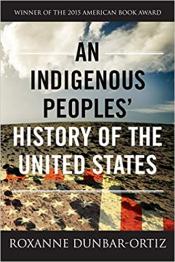
Today in the United States, there are more than five hundred federally recognized Indigenous nations comprising nearly three million people, descendants of the fifteen million Native people who once inhabited this land. The centuries-long genocidal program of the US settler-colonial regimen has largely been omitted from history. Now, for the first time, acclaimed historian and activist Roxanne Dunbar-Ortiz offers a history of the United States told from the perspective of Indigenous peoples and reveals how Native Americans, for centuries, actively resisted expansion of the US empire.
Lakota America: A New History of Indigenous Power by Pekka Hämäläinen
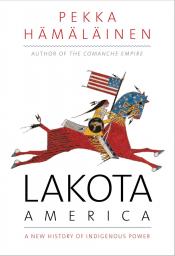
This first complete account of the Lakota Indians traces their rich and often surprising history from the early sixteenth to the early twenty‑first century. Pekka Hämäläinen explores the Lakotas’ roots as marginal hunter‑gatherers and reveals how they reinvented themselves twice: first as a river people who dominated the Missouri Valley, America’s great commercial artery, and then—in what was America’s first sweeping westward expansion—as a horse people who ruled supreme on the vast high plains.
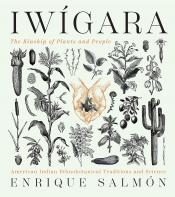
The belief that all life-forms are interconnected and share the same breath—known in the Rarámuri tribe as iwígara—has resulted in a treasury of knowledge about the natural world, passed down for millennia by native cultures. Ethnobotanist Enrique Salmón builds on this concept of connection and highlights 80 plants revered by North America’s indigenous peoples. Salmón teaches us the ways plants are used as food and medicine, the details of their identification and harvest, their important health benefits, plus their role in traditional stories and myths.
A Mind Spread Out On The Ground by Alicia Elliot [Mohawk]
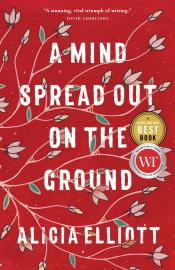
The Mohawk phrase for depression can be roughly translated to "a mind spread out on the ground." In this urgent and visceral work, Alicia Elliott explores how apt a description that is for the ongoing effects of personal, intergenerational, and colonial traumas she and so many Native people have experienced. Elliott's deeply personal writing details a life spent between Indigenous and white communities, a divide reflected in her own family, and engages with such wide-ranging topics as race, parenthood, love, art, mental illness, poverty, sexual assault, gentrification, and representation. Throughout, she makes thrilling connections both large and small between the past and present, the personal and political.
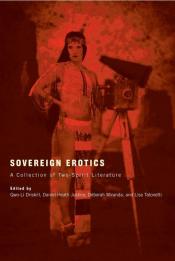
Two-Spirit people, identified by many different tribally specific names and standings within their communities, have been living, loving, and creating art since time immemorial. This landmark collection strives to reflect the complexity of identities within Native Gay, Lesbian, Bisexual, Transgender, Queer, and Two-Spirit (GLBTQ2) communities. Gathering together the work of established writers and talented new voices, this anthology spans genres and themes and represents a watershed moment in Native American and Indigenous literatures, Queer studies, and the intersections between the two.
Carry: A Memoir of Survival on Stolen Land by Toni Jensen [Métis]
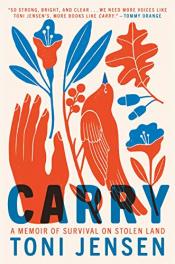
Toni Jensen grew up around guns: As a girl, she learned to shoot birds in rural Iowa with her father, a card-carrying member of the NRA. As an adult, she’s had guns waved in her face near Standing Rock, and felt their silent threat on the concealed-carry campus where she teaches. And she has always known that in this she is not alone. As a Métis woman, she is no stranger to the violence enacted on the bodies of Indigenous women, on Indigenous land, and the ways it is hidden, ignored, forgotten. In Carry, Jensen maps her personal experience onto the historical, exploring how history is lived in the body and redefining the language we use to speak about violence in America.
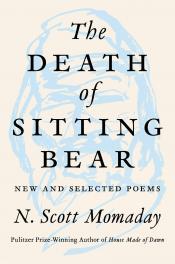
One of the most important and unique voices in American letters, distinguished poet, novelist, artist, teacher, and storyteller N. Scott Momaday was born into the Kiowa tribe and grew up on Indian reservations in the Southwest. The customs and traditions that influenced his upbringing—most notably the Native American oral tradition—are the centerpiece of his work. This collection demonstrates Momaday’s mastery and love of language and the matters closest to his heart. To Momaday, words are sacred; language is power. Spanning nearly fifty years, the poems gathered here illuminate the human condition, Momaday’s connection to his Kiowa roots, and his spiritual relationship to the American landscape.
Eyes Bottle Dark with a Mouthful of Flowers: Poems by Jake Skeets [Diné]

Drunktown, New Mexico, is a place where men “only touch ... in a backseat.” Its landscape is scarred by violence: done to it, done on it, done for it. Under the cover of deepest night, sleeping men are run over by trucks. Navajo bodies are deserted in fields. Resources are extracted. Lines are crossed. Men communicate through beatings, and football, and sex. In this place, “the closest men become is when they are covered in blood / or nothing at all.” Skeets’s collection is an unflinching portrait of the actual west and a fierce reclamation of a living place―full of beauty as well as brutality, whose shadows are equally capable of protecting encounters between boys learning to become, and to love, men.